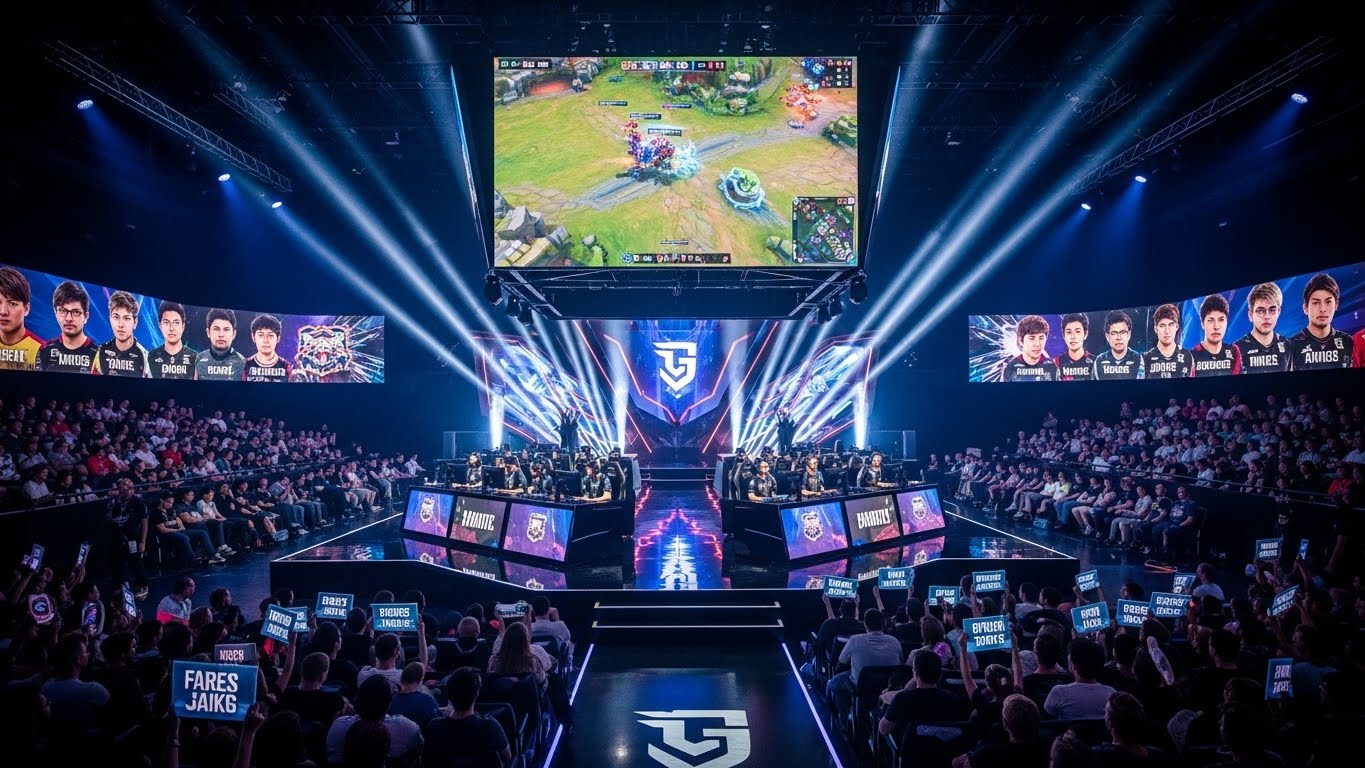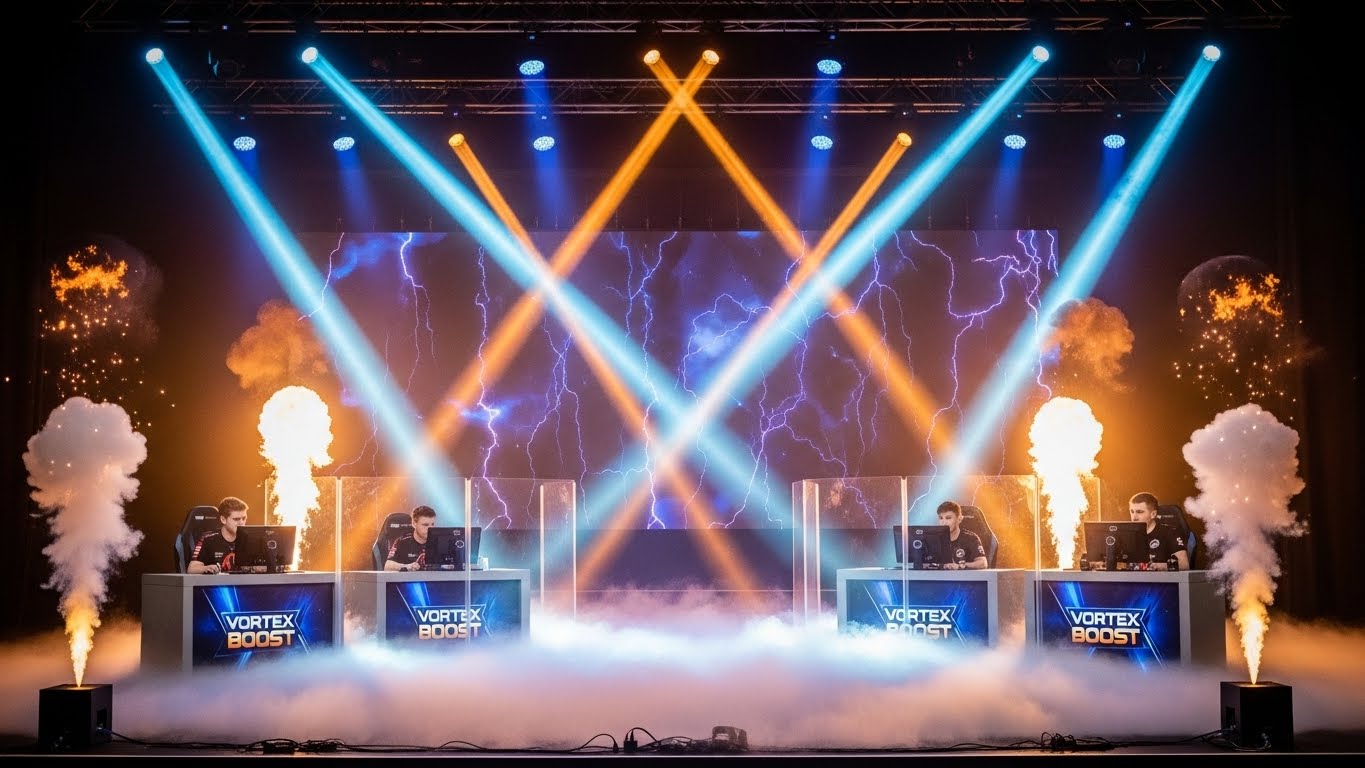Introduction to Esports
In the past few decades, the world has witnessed a revolution in entertainment, competition, and technology. Among these changes, the rise of Esports stands out as one of the most fascinating developments. Esports, short for electronic sports, refers to competitive gaming at a professional level. What began as small local tournaments among friends has now transformed into a billion-dollar global industry. From arenas filled with cheering fans to online streaming platforms attracting millions of viewers, Esports has become an unstoppable cultural phenomenon.
Unlike traditional sports, Esports exists entirely in the digital world. It merges technology, entertainment, and competition into a unique experience that captivates both players and audiences. Esports is not just about playing video games; it’s about skill, strategy, teamwork, and passion. Whether it’s strategy games, battle royales, first-person shooters, or sports simulations, Esports offers a competitive platform for every kind of gamer.
The History and Evolution of Esports
The origins of Esports can be traced back to the early 1970s when video games were still a new concept. One of the first known gaming competitions was held at Stanford University in 1972, featuring the game “Spacewar.” The winner received a subscription to a technology magazine, not a cash prize. Though small in scale, this event marked the beginning of a new kind of competition—one that would grow far beyond anyone’s imagination.
During the 1980s and 1990s, video games became more mainstream. Arcade machines, home consoles, and PC games brought gaming into everyday life. Tournaments began appearing more frequently, especially for games like “Street Fighter,” “Super Smash Bros.,” and “Quake.” These competitions attracted local communities and laid the foundation for organized gaming events.
The 2000s marked a major turning point for Esports. The rise of broadband internet and online gaming made it easier for players from different parts of the world to compete against each other. Games such as “Counter-Strike,” “Warcraft III,” and “StarCraft” became the backbone of professional tournaments. Esports organizations began forming, and sponsors started recognizing the commercial potential of gaming.
Today, Esports is no longer a niche activity—it is a professional ecosystem. Players sign contracts, receive salaries, and compete for millions of dollars in prize money. International tournaments such as “The International” for Dota 2, “League of Legends World Championship,” and “Fortnite World Cup” attract audiences comparable to major traditional sports events.
The Structure of Esports
At its core, Esports functions similarly to traditional sports. There are players, teams, coaches, sponsors, commentators, and fans. However, the digital nature of Esports gives it unique characteristics.
Professional players usually specialize in one particular game. They spend hours each day practicing mechanics, strategies, and teamwork. Just like football or basketball players, Esports athletes follow strict routines to maintain peak performance. Coaches and analysts study opponents’ gameplay, design tactics, and help teams improve their coordination.
Teams represent organizations that manage players, secure sponsorships, and handle logistics. Some of the biggest Esports organizations, such as Team Liquid, Cloud9, and Fnatic, have become global brands. These organizations compete across multiple games and maintain massive fan bases worldwide.
Tournaments and leagues form the backbone of competitive play. They can be organized by game developers, independent event organizers, or Esports federations. The structure varies—some games use seasonal leagues, while others rely on annual world championships. Streaming platforms like Twitch and YouTube Gaming play a crucial role by broadcasting matches live to millions of viewers.
Popular Esports Titles
The world of Esports is diverse, with different genres appealing to different audiences. Some of the most popular Esports titles include:
League of Legends (LoL) – A multiplayer online battle arena (MOBA) game developed by Riot Games, LoL is one of the most iconic Esports titles in the world. It features complex strategies, team coordination, and global tournaments with multi-million-dollar prize pools.
Counter-Strike: Global Offensive (CS:GO) – A first-person shooter that emphasizes teamwork, precision, and tactics. CS:GO has been a staple of Esports for over a decade, known for its intense competitive scene and loyal fan base.
Dota 2 – Another major MOBA game, Dota 2 is famous for its complexity and massive prize pools. “The International,” its annual world championship, often features record-breaking prize money funded by community contributions.
Fortnite – Known for its colorful graphics and battle royale format, Fortnite became an Esports sensation, especially among younger audiences. The Fortnite World Cup set new records for both participation and viewership.
Call of Duty – A long-running franchise with numerous titles, Call of Duty’s competitive scene thrives through structured leagues and international tournaments.
Valorant – A relatively new addition to the Esports scene, Valorant combines elements of tactical shooters and hero-based gameplay. Its developer, Riot Games, has quickly built a strong competitive ecosystem around it.
Rocket League – A unique blend of soccer and cars, Rocket League’s simple concept and fast-paced gameplay make it one of the most entertaining Esports to watch.
The Global Impact of Esports
The influence of Esports goes far beyond gaming. It has reshaped entertainment, culture, and even education.
Economic Growth:
The Esports industry generates billions of dollars annually through sponsorships, advertisements, merchandise, and media rights. Major brands from technology, automotive, and fashion industries are now investing in Esports to reach younger audiences. Esports arenas have been built in cities around the world, hosting live events that draw thousands of fans.
Cultural Influence:
Esports has created a new kind of celebrity—the professional gamer. Players like Faker, s1mple, and Bugha are household names within the gaming community. They inspire millions of aspiring gamers who see Esports as a legitimate career path. Esports has also influenced music, movies, and fashion, blending gaming culture with mainstream entertainment.
Education and Career Opportunities:
Esports has entered schools and universities, with some institutions offering scholarships to talented players. Beyond playing, careers in Esports include coaching, event management, marketing, broadcasting, and game development. The industry requires a wide range of skills, from strategic analysis to digital production.
Technology Advancement:
Esports has pushed the boundaries of technology. High-performance computers, streaming innovations, and virtual reality experiences have all benefited from the demands of competitive gaming. The industry’s growth encourages constant improvement in hardware and software design.
Esports and the Role of Streaming Platforms
Streaming platforms have played a vital role in turning Esports into a global phenomenon. Sites like Twitch, YouTube Gaming, and Facebook Gaming allow fans to watch live matches, follow their favorite players, and interact with the community.
Before streaming, Esports events were limited to small audiences or local broadcasts. Now, a player in one country can compete while fans from across the world tune in instantly. This accessibility has made Esports more inclusive and interactive. Streamers also act as ambassadors for games, creating content that attracts new audiences.
Streaming has also given rise to individual careers. Many professional players transition into full-time streamers after retirement, maintaining their connection with fans and the gaming community.
Challenges Faced by the Esports Industry
Despite its rapid growth, Esports faces several challenges that could impact its future.
Player Burnout:
The intense training schedules and constant competition can lead to fatigue and burnout among players. The average career span of a professional Esports athlete is shorter than that of most traditional athletes due to mental and physical strain.
Financial Inequality:
While top-tier teams earn substantial income, smaller teams and lower-tier players often struggle financially. Prize money distribution and sponsorships are not evenly spread across all games or regions.
Regulation and Integrity:
Esports is still developing standardized rules and governing bodies. Issues such as cheating, match-fixing, and performance-enhancing substances occasionally surface, challenging the industry’s credibility.
Diversity and Inclusion:
The Esports community is often criticized for its lack of diversity, particularly gender representation. However, progress is being made as more initiatives promote inclusivity and equal opportunities for all players.
The Future of Esports
The future of Esports looks incredibly bright. With technological innovation, increased recognition, and expanding global reach, it is set to grow even more in the coming years. Virtual reality and augmented reality may introduce new forms of competitive gaming that blend the physical and digital worlds.
Educational institutions are integrating Esports programs to train future professionals in management, broadcasting, and development. Governments in some countries are even recognizing Esports athletes as legitimate professionals, providing visas and funding for international events.
Esports could also become a part of major multi-sport events. Discussions about including Esports in the Olympics have already begun, signaling how far the industry has come in terms of recognition.
The Social Aspect of Esports
Esports has created communities that span across borders. Players and fans connect through shared passion, forming online and offline friendships. Tournaments bring people together regardless of nationality or language, making Esports a truly global phenomenon.
Gaming conventions and fan meet-ups add to this social dimension, creating a sense of belonging among participants. In many ways, Esports has replaced traditional social gatherings for younger generations who find comfort and identity in the gaming world.
Conclusion
Esports is no longer a futuristic concept—it is a thriving reality that continues to shape how people interact, compete, and entertain themselves. From its humble beginnings to its current global dominance, Esports symbolizes the power of technology and human creativity.
It represents the merging of skill, strategy, and passion in a digital age. What started as a hobby has become a profession, a culture, and a movement. The influence of Esports extends beyond the screen—it is changing how the world views competition and redefining what it means to be an athlete.
The journey of Esports is still unfolding, and its future holds endless possibilities. As technology advances and more people join the digital arena, one thing is certain—Esports will continue to inspire, entertain, and unite millions across the world.

